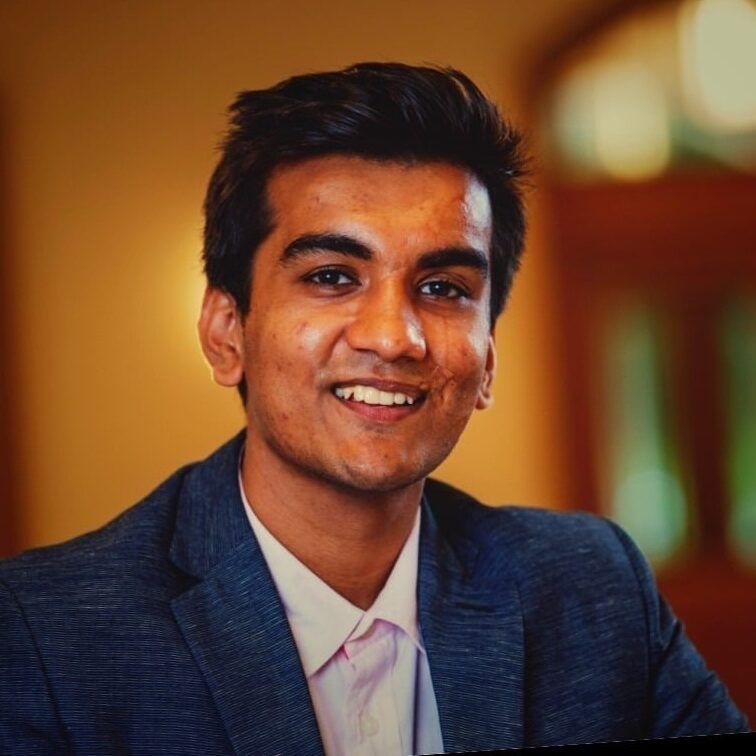Fantasy Becomes Reality as Trump Takes Revenge on Disinformation Researchers
Dean Jackson, Prithvi Iyer / Apr 30, 2025
President Donald Trump signs executive orders at the White House on January 20, 2025. Wikimedia
The last year of Trump’s first term, 2020, was a challenging year for the relationship between Washington and social media platforms. Things have only become more complicated since. Conservative fury over content moderation decisions during COVID-19, the George Floyd protests, the 2020 US election, and the January 6 insurrection led to organized efforts by conservative figures from House Judiciary Committee Chairman Jim Jordan (R-OH) to car salesman, rocketship manufacturer, and tech entrepreneur Elon Musk. They notched early wins, including the implosion of the Department of Homeland Security’s Disinformation Governance Board and the diminishment of the Stanford Internet Observatory.
But with Trump’s second inauguration, the politically useful narratives behind these efforts have shaken hands with political power, taking on new meaning and salience. Compared to the assault on disinformation research—and science more generally—since Trump’s reelection, the events of 2023 and 2024 were like T.S. Eliot’s Hollow Men: shape without form, and gesture without motion. The second Trump presidency has given these phantoms mass, with blistering speed and ominous consequences. It is past time researchers learned to fight back.
A hundred day blitz
On his first day in office, Trump signed an executive order aimed at restoring free speech and eliminating federal censorship. The order asserts that “the previous administration trampled free speech rights by censoring Americans’ speech on online platforms,” a claim previously rejected by the US Supreme Court.
In accordance with the order, Attorney General Pam Bondi disbanded an FBI task force established in the aftermath of Russian interference in the 2016 US election. It is abundantly clear that protecting Americans from disinformation and foreign influence is no longer a government priority: in February, the Attorney General also ordered the Department of Justice to stop enforcing all but the narrowest interpretations of the Foreign Agents Registration Act.
Similarly, the Cybersecurity and Infrastructure Security Agency (CISA), which has responsibility for critical infrastructure including election systems, has also been severely downsized. A total of 130 employees were placed on administrative leave, and the agency also conducted a review of its election security efforts, especially those related to mis-and disinformation.
The Trump administration also went after Chris Krebs, the former head of CISA, labeling him as a “bad-faith actor who weaponized and abused his Government authority” in an official memorandum accusing Krebs of suppressing conservative viewpoints in the guise of fighting disinformation. The attack on Krebs went a step further, accusing him of denying that the “2020 election was rigged and stolen,” a common and untrue claim made by Trump and his supporters. The memorandum also directed the Attorney General to conduct a comprehensive review of CISA’s work over the last six years and ordered relevant agencies to “suspend any active security clearances held by individuals at entities associated with Krebs.” including Krebs’s employer, a cybersecurity company called SentinelOne.
Academia is another front in Trump’s war against disinformation research. The pressure placed on universities and researchers over the last few years has become a full-scale assault not just on the field of disinformation research but against higher education as a whole and the very concept of science. In late April, the National Science Foundation (NSF) announced that it will eliminate grants for research projects related to disinformation, election security, and diversity, equity, and inclusion (DEI). “[The] NSF will not support research with the goal of combating ‘misinformation,’ ‘disinformation,’ and ‘malinformation’ that could be used to infringe on the constitutionally protected speech rights of American citizens,” the announcement said.
Meanwhile, the FTC launched an inquiry into alleged bias and social media censorship despite criticism of these allegations by social scientists. Ironically, the FTC is hiding some of these public comments for alleged “profanity,” exercising its own form of content moderation.
More recently, in April 2025, US Secretary of State Marco Rubio shut down the last remnants of an office responsible for combating global disinformation operations. Rubio’s memo explaining the decision resorted to familiar conservative tropes of censorship and free speech, blaming the Biden administration for spending millions of dollars to “actively silence and censor the voices of Americans,” even though this initiative began during the first Trump administration. In a piece published by the Federalist Society, Rubio rationalized the administration’s decision to dismantle disinformation watchdog groups, arguing that “American people don’t need an obscure agency to ‘protect’ them from lies.” Critics, however, say Rubio’s decision makes the US more vulnerable to malign foreign influence.
Rubio’s move set the stage to continue banging the drum on this issue. In a livestream with Rubio, Mike Benz, a former State Department official who has made a post-government career of crusading against counter-disinformation programs, asked the Secretary if there would be a kind of Twitter Files “sequel” composed of files from the State Department’s now-shuttered Global Engagement Center. Rubio responded that there would and that it would involve Darren Beattie—the acting undersecretary of State for Public Diplomacy and Affairs who was fired from a role in the First Trump administration after CNN revealed his participation in a conference for white nationalists.
You read that correctly: a known white nationalist will be in charge of ‘proving’ that US government efforts to combat Russian and ISIS propaganda were a form of anti-conservative censorship.
Bracing for the future
Down the pike, targets of the administration should plan for Trump’s retribution to grow more frequent and more terrible. University academics, nonprofit managers, and other targeted individuals in positions of authority need to realize that they cannot tame this beast. They have become villains in a story about conservative persecution, and just because the story is untrue does not mean it is not dangerous. Concessions, explanations, revised lexicons, and programmatic shifts are unlikely to work because policy per se is not the issue. Rather, it appears that the identification and immiseration of useful enemies is itself a policy goal. Populists need an aggrieved public to justify their radicalism, just as authoritarians use grievance to justify oppression. They must perpetually renew that sense of grievance and answer the resulting demands for retribution in a corkscrew of authoritarian legitimation that grows tighter and more destructive with each turn. The beast is fed, but never sated. It grows hungrier each day.
“Winning,” in MAGA parlance, does not mean self-advancement. It means bringing suffering to one’s enemies. This logic implies more retaliation to come, and the administration’s targets should be prepared. Who else should brace themselves for a federal investigation into their work and targeted discrimination against their employer? Should prospective targets prepare for tax or even criminal investigations? What new narratives and targets might come out of a “Twitter Files II” based on State Department documents? How will expected actions targeting nonprofits affect foundations, and how can civil society develop more resilient funding streams? In a world where content moderation is regarded as a crime, how can the 2026 and 2028 elections be secured against rumors and disinformation?
The US right’s campaign against disinformation research has global reach and consequences. Disinformation research is an international field; cancellation of NSF grants will have drastic effects in Europe and beyond. In written comments to Tech Policy Press, Claes de Vresse, Professor of Political Science at the University of Amsterdam, argues that ties with US peers and the careers of young scholars have been jeopardized by cuts to US research. “These cancellations break a fundamental ‘contract' between science and society: if you get a research grant after a competitive review process, you should be able to assume that the ones issuing the grant will honor their commitment and not revoke it halfway. That is a fundamental part of how science operates,” de Vresse writes. He worries that scholars will be less willing to travel to the US and more worried about speaking publicly about issues there.
de Vrasse also warned that “there will always be political entrepreneurs who take inspiration from the US case and adopt some of the language or measures elsewhere. The anti-science, anti-disinformation research playbook is sadly one that is easily copied.”
Stand up, fight back
How should researchers and advocates respond to this onslaught? There are already a number of legal defense and other funds set up to assist researchers under attack. These are important and necessary, but insufficient—like trying to prevent car crashes by buying more ambulances. What else should researchers do?
First, they can stop ceding the rhetorical high ground. Some have suggested pivoting away from “disinformation” and potentially adopting alternatives such as “information integrity.” Writing for Tech Policy Press, Michael Khoo compared this trend with the sustainability discourse and the shift away from using the phrase “global warming” to something more innocuous, the Republican preferred phrase “climate change.” As he says, “the term is not perfect, but it is a very good gateway for discussion. People knew global warming was a threat in the 2000s, just as they know disinformation is a threat now. If advocates give in and let disinformation die, the other side will surely and silently cackle.”
Second, they may look for allies and refuge abroad. Alexandre Alaphilippe, executive director of the EU DisinfoLab, told Tech Policy Press in an interview that European researchers have stronger prospects for resistance than US researchers: “It’s different from the US… we are now in a better position in terms of checks and balances,” he said. Alaphilippe believes that Europe’s strong drive toward social media regulation should protect the field of disinformation research there. He was dismissive of claims that the fight against deliberate, coordinated, large-scale campaigns of deception is censorship, calling this a “false debate” and declaring that “the debate is closed. The laws have been voted on by a majority of democratic representatives, and the law forces platforms at long last to be transparent about what and how they are moderating content online.” Alaphilippe says that solidarity between US and European researchers is an important priority for the field. This might call for new initiatives to bring US researchers to European universities, where it’s “safer to operate… we should be exchanging information, experience, and resources, to make sure that we can all work together and to support colleagues that are facing difficult times… Europe can play a lead role here.”
Finally, as Georgetown scholar (and Tech Policy Press board member) Renee DiResta recently wrote for Lawfare, targets of the administration can “fight spectacle with spectacle.” Drawing on the history of the House Un-American Affairs Committee—which operated from 1938 to 1975 and is most famous as an appendage of 1950s McCarthyism—DiResta describes how some targets of that body used their testimony as an opportunity to spotlight the Committee’s political persecution in all its injustice and absurdity and makes direct parallels to the House Judiciary Committee’s activities under Rep. Jordan’s chairmanship. “Americans who are summoned to kangaroo courts,” she argues, “must understand the assignment: Do not be deferential. Do not cower. Whatever you turn over will be used against you, so fight accordingly—legally, as well as in the court of public opinion.”
Unfortunately, the deeply embedded instinct of many US organizations—from universities to nonprofits to corporations—is to comply rather than act collectively in defense or defiance. An individual researcher is weak, but a field is mighty, and a sector is stronger still.
There is still scope for optimism, despite Trump’s efforts to undermine an entire field of study and everything it stands for, in that academics and advocates continue to make their voices heard. This month's Cambridge Disinformation Summit saw global participation, including from advocates in the US. Convenings like it are crucial, especially in a moment when disinformation researchers must find a way to shape the narrative by telling the story of their struggle with one voice, before it is too late.
Authors

